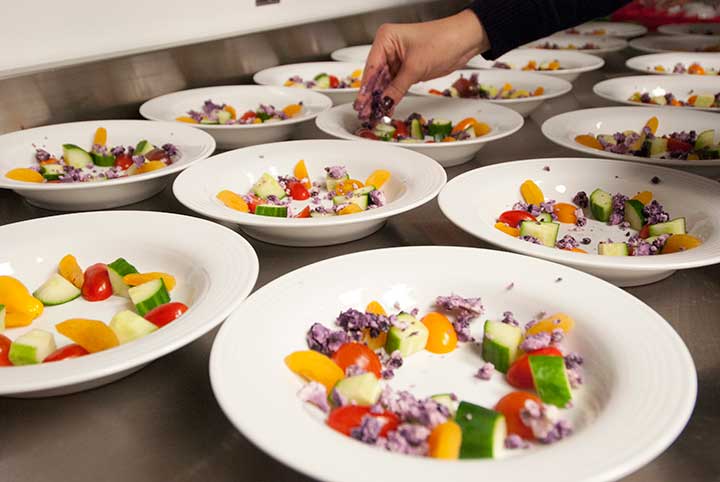Fish Harvest Photo Gallery


Nov. 14, 2018
Last November, Seneca Urban Farm by Ripple Farms at Newnham Campus celebrated its first official harvest with five pounds of leafy greens.
This week, 20 tilapia from the farm’s aquaponics system closed the food production loop when they were filleted for a special fish harvest luncheon at Markham Campus.
A total of 18 students from different departments and campuses joined Seneca President David Agnew, Christine Blake, Dean of Students, Mary Vaughan, Dean, Seneca Business, and Angela Zigras, Chair, School of Hospitality & Tourism, for a feast prepared by Professor Ramesh Poredi of the Hospitality – Hotel & Restaurant Services Management program.

Poredi, a Mumbai-born chef who trained with Hilton International in London, England, has served the likes of Prince Charles, Prime Minister Justin Trudeau, former premier Kathleen Wynne, former United Nations secretary-general Kofi Annan and many African heads of states.
Having worked in the food and beverage industry for 33 years, 18 of which as a chef, Poredi has cooked his way around the world, including in Australia, Japan, Nigeria, Central Asia, the Caribbean and the Middle East.
He has been teaching at Seneca since 2010.

For the special fish harvest luncheon, Poredi created a four-course menu showcasing three ingredients produced at Seneca: tilapia and lettuce from the urban farm, and Seneca honey. He is assisted by his students both front and back of the house.
“I wanted to keep everything organic and use local ingredients that will not overpower the flavour of the fish,” Poredi said. “Local organic foods have a more natural taste that is free from pesticides. It’s OK if the tomato doesn’t look perfect. Perfect means modified. Natural is in its own shape.”
While there’s a misconception that local foods are more expensive, Poredi said not by much.
“I’m happy to promote local foods because it’s a social message to the community and the students that we have to protect and sustain the environment by using local produce,” he said.
Lindsay Janik and Enkelejda Elezaj were two of the lucky students invited to the luncheon. Both in their second year of the Environmental Technology program, they were impressed with the food from the first course to the last.
“It’s good when you know where the food comes from,” Janik said.
“Especially tilapia,” Elezaj added. “These tilapia were fresh and clean, and they tasted amazing.”
Since December 2017, Seneca Urban Farm by Ripple Farms has produced more than 20 kilograms of greens. The greens are delivered each week to the Newnham Campus cafeteria for purchase at the salad bar.